ATSC 3.0/1.0 Monitoring Probe
EdgeProbe Advanced ATSC 3.0/1.0
The ideal tool for accurate & cost-effective monitoring of the quality actually delivered to all points of ATSC 3.0/1.0 networks.
"*" indicates required fields
Applications
- 24/7 Network Quality Monitoring:
- Head-End: STLTP distribution (over IP, Satellite)
- TX sites: RF transmission quality & stability, SFN synchronization
- Reception area (SFN overlapping): RF signal quality & Echoes (w/ TX ID)
- Generation of Service Availability reports for SLA & channel bitrate allocation stats for Lighthouse scenario
- Plan and improve the network configuration by identifying global trends
Benefits
- Standalone, easy to use and configure, fast deployment, SNMP compatible
- Reduce TX sites maintenance cost by anticipating and identifying issues
- Increase customer satisfaction by detecting & preventing DTV network degradations before your customers do
- Remotely accessible, compatible with low bandwidth control networks (GPRS/3G/4G)
- Low power consumption (25W)
Combined with a NMS or TestTree’s GlobalViewer, the EdgeProbe Advanced provides a powerful broadcast network alert & diagnosis tool allowing DTV network operators to monitor global trends and anticipate potential failures.
EdgeProbe Advanced is able to monitor ATSC 3.0/1.0 signals at Transmitter output through its RF inputs (up to 4 in 1RU), as well as at Modulator input and Head-End/distribution links through IP (STLTP) inputs.
Accurate RF & SFN measures at TX output or Reception area
RF spectrum display and Shoulders (out-of-band) monitoring
Signal Level, SNR, MER (L1-Basic, L1-Detail, PLP), BER LDPC iteration
TX SFN measure: RF frame drift
Reception area SFN measure: Channel Impulse Response (Echoes) with TX ID decoding and echo association
Compatible ATSC 1.0
Up to 4 RF inputs in 1RU
Distribution link STLTP monitoring
IP network quality: jitter, FEC support (Packet Loss & Recovery)
SFN synchronization: STLTP Network Delay
STLTP integrity
At Head-End and/or TX site
ATSC 3.0 content monitoring for Lighthouse scenario
PLP and Services list decoding
Bitrate & Channel usage monitoring
ATSC 1.0 TS monitoring
ETSI TR 101 290 priority 1, 2, 3
Multiplex Service structure: service/PID list, bitrate, scrambling/PCR presence
RF measures & channel bitrate history storage
Alarm logs, RF parameter trends and channel bitrates stored up to 4 months
CSV format files, available for download via web GUI or FTP connection (automation scripts)
Demodulated TS recording (.ts) for ATSC 1.0
32 GB of internal storage per monitoring unit (up to 4 in 1RU)
Highly customizable alarming
User-defined alarm thresholds (min, max, hysteresis) & severity (critical, warning, info)
Alarming templates (profiles) defined per RF channel
SNMP trapping configurable per alarm
Internal GNSS receiver (HW option)
Generates an internal 1PPS reference signal for SFN synchronization measurements – which is independent from the modulator’s reference signal
Dual Power Supply (HW option)
One additional Power Supply can be installed on the equipment in order to ensure the power redundancy
INTERFACES
- RF Connector In
-
Up to 4x RF inputs (N-type female 50 Ω)
- Standards
-
ATSC 3.0 (NEXTGEN TV), ATSC 1.0
- Frequency range
-
40 to 1000 MHz
- RF Sensitivity
-
-80 to -5 dBm / 28 to 104 dBμV
- BaseBand
-
Up to 4x Gigabit Ethernet for DATA in/out (VLAN support)
Up to 4x ASI in/out (BNC-type female 75 Ω)
- GNSS & Time Reference HW option
-
1x GNSS antenna input (SMA-type 50 Ω) (GPS/GLONASS), 3.3V antenna power up
1x 1PPS input (BNC-type female 50 Ω)
1x 10MHz input (BNC-type female 50 Ω)
MONITORING FEATURES
- ATSC 3.0 RF Monitor
-
Demodulation status: Lock / Unlock
Spectrum, Constellation display
Shoulders measurement: Lower (Left), Upper (Right)
Signal level: -100 to -5 dBm
SNR: 0 to 50 dB
MER: 0 to 40 dB (L1-Basic, L1-Detail, PLP)
Pre-LDPC BER, Pre-BCH BER, Post-BCH FER, Packet Error Number, LDPC Iteration
- ATSC 1.0 RF Monitor
-
Demodulation status: Lock / Unlock
Spectrum display
Shoulders measurement: Lower (Left), Upper (Right)
Signal level: -100 to -5 dBm
SNR: 0 to 50 dB
Post-Viterbi BER
- Reception area SFN Monitor
-
Channel Impulse Response – Echoes: Delay/Level alarm mask per echo
With TX ID detection and echo association
- TX SFN Monitor
-
SFN Drift measured at RF level
Fast identification of which TX site is causing SFN issues
- ATSC 1.0 Transport Stream - ETR 290 Monitor
-
MPEG-2 TS Monitor, ETSI TR 101 290 Priority 1, 2, 3
- ATSC 1.0 Service Plan
-
Verify regional services, Service & PID bitrates, Scrambling, Service & PID presence
- ATSC 3.0 Content Monitor - Service Plan
-
PLP list & Services list with Bitrates and Channel Usage (ideal for channel-sharing scenarios – “Lighthouse”)
Modulation parameters with complete decoding of L1 information (Subframes, PLP structure)
- ATSC 3.0 STLTP Monitor
-
Up to 4x Gigabit Ethernet STLTP stream input
IP link monitoring (IP jitter, FEC, Packets lost/recovered)
STLTP integrity (Inner, Outer, L1)
- Round-Robin Monitor Mode
-
Monitor sequentially (round-robin) multiple frequencies over 1 RF input
Monitoring status & context is kept between two successive monitoring rounds
- 32GB Internal Memory
-
Up to 4x 32 GB of internal storage (per monitoring unit): alarm logs, RF trends, service bitrates up to 4 months. CSV format files. Available for download via web GUI or FTP connection. Demodulated TS recoding (*.ts) files.
PHYSICAL
- Height (1 or 2 monitoring units) : 45 mm / 1.7 in, Width: 440 mm / 17.3 in, Depth: 145 mm / 5.7 in
- Height (4 monitoring units) : 45 mm / 1.7 in, Width: 440 mm / 17.3 in, Depth: 300 mm / 11.8 in
- Format: 1 RU, width 19”, Power supply: 100-240 VAC +/-10%
- Power consumption: 10 W per active monitoring unit
- Redundant Power Supply (HW option)
ENVIRONMENT
- Operating temperature
-
-20 to 55°C / -4 to 131°F
- Storage temperature
-
-20 to 70°C / -4 to 158°F
- Humidity
-
0 to 95%, non condensing
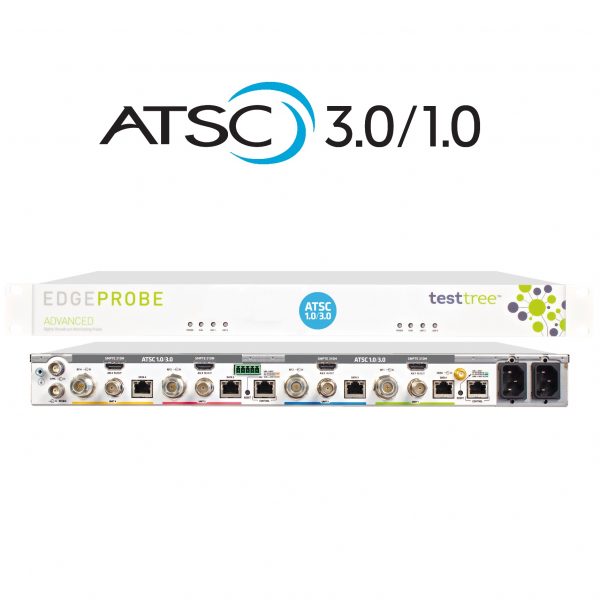
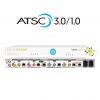
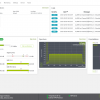
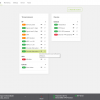
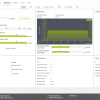
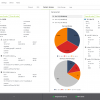
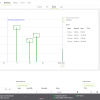
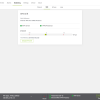
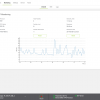
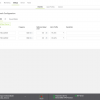
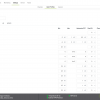
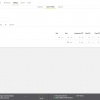
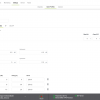
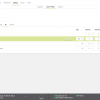
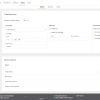
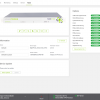
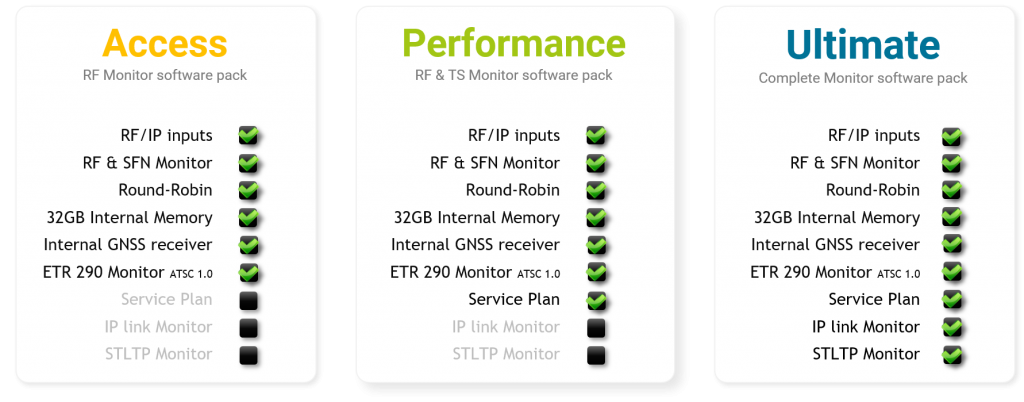

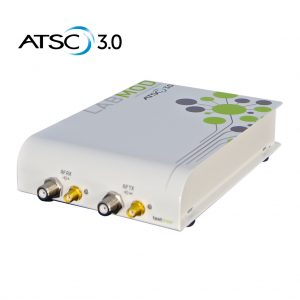
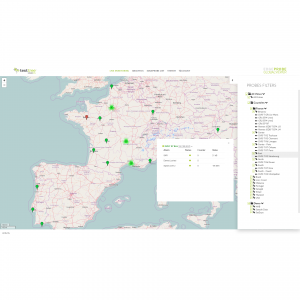
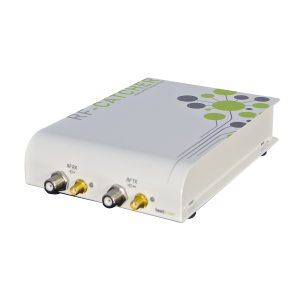
comments
There are no reviews yet.